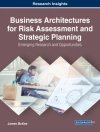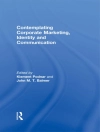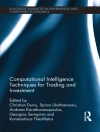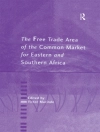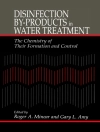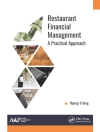This essential companion will guide you on your journey throughout your studies in tourism, hospitality and events management, from starting your university or college programme, to developing the essential skills needed for successful study and employment, to ensuring you perform well in assessments, through to applying for and securing a graduate level job and entering the workplace.
Highly practical and accessible, chapters include:
- Think points to encourage you to pause and reflect on what the topic means for you
- Reflection exercises to help you evaluate your own skills, attributes and strengths/weaknesses
- Industry insights to offer you a unique view into the industry you’ll be working in
- Employer insights to provide you with real-world case examples from employers
- Student insights to show you different perspectives experienced by your peers
Written by experts in the field, this friendly guide will provide you with everything you need to succeed and support you along every step of the way through your studies and into industry!
Table of Content
Section A: Study Skills for Tourism, Hospitality and Events
Chapter 1: The value of a university education
Chapter 2: Typical teaching methods and approaches
Chapter 3: Researching tourism, hospitality and events
Chapter 4: Finding sources and academic reading
Chapter 5: Academic writing and referencing
Chapter 6: Assessments: written course work and examinations
Chapter 7: Assessments: presentations (group and individual)
Chapter 8: Critical thinking and questioning what you are reading
Chapter 9: Digital literacy and the application of ICT
Chapter 10: Reflective thinking
Chapter 11: Time management
Section B: Personal Development and Employability Skills
Chapter 12: Employability: developing skills for work and life
Chapter 13: Communication and interpersonal skill development
Chapter 14: Body talks: body language and non-verbal communication
Chapter 15: Team-working and leading others
Chapter 16: Languages and cultural sensitivity
Chapter 17: Social responsibility and sustainability awareness
Chapter 18: Project Management
Chapter 19: Problem Solving and Creativity
Section C: Gaining work experience
Chapter 20: Graduate employment in tourism, hospitality and events
Chapter 21: Work Placements and internships
Chapter 22: Volunteer opportunities and part time work
Section D: Career planning and preparation
Chapter 23: Successful transition into the world of work
Chapter 24: Understanding the selection process
Chapter 25: Social media and your job search
Chapter 26: Personal branding: ‘brand me’
Chapter 27: Effective networking
Chapter 28: Postgraduate studies and the route towards an academic career
Section E: Securing and entering employment
Chapter 29: CVs
Chapter 30: Application forms and covering letters
Chapter 31: Selection interviews
Chapter 32: Psychometric tests
Chapter 33: Assessment and recruitment centres
Section F: Your own way? Entrepreneurship and future opportunities
Chapter 34: Developing ideas and concepts for a new business
Chapter 35: Emergent opportunities and the Fourth Industrial Revolution
Chapter 36: Conclusion
About the author
Sally is Professor of Business Education and Vice Dean (Education) at King’s Business School, King’s College London. Sally was previously a Deputy Dean at Anglia Ruskin University (ARU) and led their work on inclusive learning and teaching. She is a National Teaching Fellow and a Principal Fellow of the Higher Education Academy. Before her time at ARU, Sally was the Head of Department for tourism and marketing at the University of Bedfordshire, and previously worked for a large heritage visitor attraction in Bristol. Sally’s research interests include cultural tourism and inclusive education. Publications include ‘Food Tourism: Principles and Practices’ with Sage Publications and numerous articles on tourism, community resistance and inclusive teaching.


